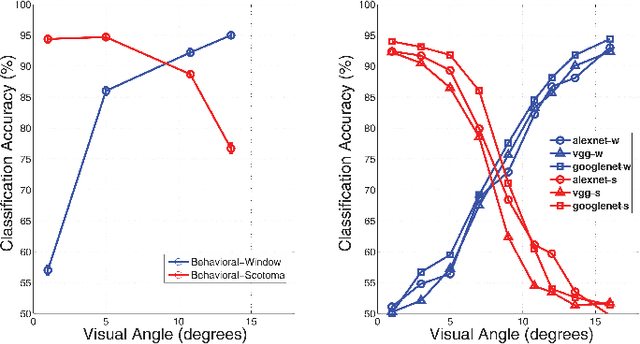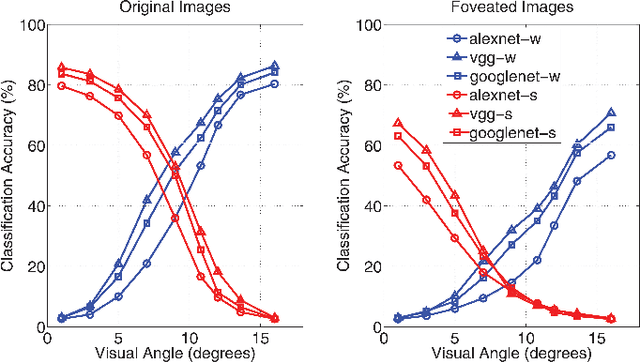Modeling the Contribution of Central Versus Peripheral Vision in Scene, Object, and Face Recognition
Paper and Code
Apr 25, 2016



It is commonly believed that the central visual field is important for recognizing objects and faces, and the peripheral region is useful for scene recognition. However, the relative importance of central versus peripheral information for object, scene, and face recognition is unclear. In a behavioral study, Larson and Loschky (2009) investigated this question by measuring the scene recognition accuracy as a function of visual angle, and demonstrated that peripheral vision was indeed more useful in recognizing scenes than central vision. In this work, we modeled and replicated the result of Larson and Loschky (2009), using deep convolutional neural networks. Having fit the data for scenes, we used the model to predict future data for large-scale scene recognition as well as for objects and faces. Our results suggest that the relative order of importance of using central visual field information is face recognition>object recognition>scene recognition, and vice-versa for peripheral information.
 Add to Chrome
Add to Chrome Add to Firefox
Add to Firefox Add to Edge
Add to Edge